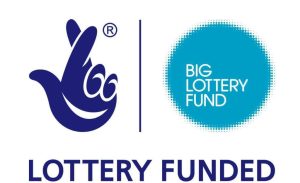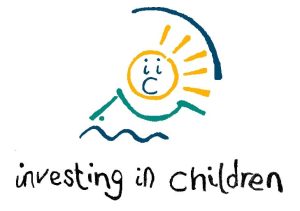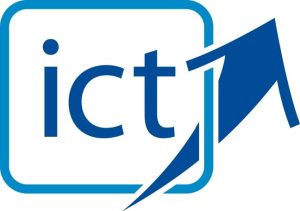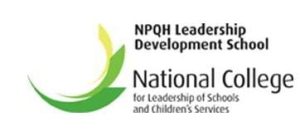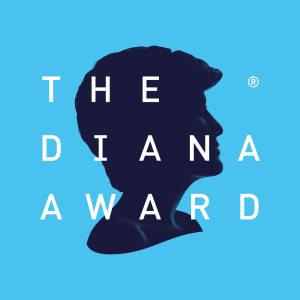Most children and young people in mainstream schools will have their special educational needs met through good classroom practice. This is called Quality First Teaching.
Early Identification of Need
In deciding whether to make special education provision to support educational, social, physical or emotional needs, we:
- Discuss as a staff concerns we have over pupils in our care in the areas of educational, social , physical and emotional needs .We track and monitor progress and attainment
- Work in partnership with parents/carers, pupils.
- Consult with relevant external agencies e.g. Occupational Therapists; Educational Psychologists; Speech and Language professionals
- Use assessment tools & materials
- Use observations
- Use Short Notes
SEN Support
Where a pupil is identified as having a special educational need we follow a graduated approach which takes the form of cycles of “Assess, Plan, Do, Review”.
This means that we will:
- Assess a child’s special educational needs
- Plan the provision to meet your child’s aspirations and agreed outcomes
- Do put the provision in place to meet those outcomes
- Review the support and progress
As part of this approach every child with SEN will have an individualised SEN Support Plan that describes the child’s needs, outcomes & provision to meet those needs. Parents/carers and child/YP (where appropriate) views are integral to the this process.
At Gainford Church of England Primary and Pre-School, termly assessment is carried out by staff who work together to moderate children’s work. This moderation is supported by the Local Authority on a regular basis. The school uses a tracking system to analyse data and to identify gaps in children’s learning and to plan appropriate intervention when required. Different children require different levels of support to diminish the difference and to achieve age related expectations.
Children/young people may join Gainford Church of England Primary and Pre-School with parents having a clear understanding of their child’s needs and as a school we see parents as partners in their child’s educational journey. In this case we work together with parents/carers and young children/person and education, health and social care professionals to design an individualised SEN Support Plan that describes the child’s needs, outcomes & provision to meet those needs. Parents/carers and child/young person views are integral to the this process.
School staff may initially identify a concern and the class teacher alongside the SENCo will discuss the child’s needs and a meeting with parents/carers and/or the child/young person would be arranged at the earliest opportunity. During this meeting a Short Note/Cause for Concern form would be completed with agreed outcomes for the child/young person and next steps. The next steps may require specific intervention within school for example phonics intervention, lexia intervention for reading etc or the involvement of specialist support or advice It is important to understand that the involvement of professionals does not always seek to label or diagnose but to seek advice and strategies to enable a child/young person to reach their full potential.
For some concerns, we may discuss the involvement of specialist support, for example, Education Psychology, SENDIASS (support for families) CAMHS,or Occupational Therapy. It is important to understand that the involvement of professionals does not always seek to ‘label’ or ‘diagnose’ children but to seek advice or strategies to help them to reach their full potential. As part of this approach every child with SEN will have an individualised SEN Support Plan that describes the child’s needs, outcomes and provision to meet those needs. Parents/carers and child/young person views are integral to the this process.
A small percentage of children and young people with significant and/or complex needs may require an assessment that could lead to an Education, Health and Care Plan (EHCP).
The purpose of an EHCP is to make special educational provision to meet special educational needs of the child or young person, to secure the best possible outcomes for them across education (SEND Code of Practice p.142). It is a legal document that describes a child or young person’s special educational, health and social care needs. We currently have Five EHC Plans.
For more detailed information see the Local Offer
Details of Identification and Assessment of Pupils with SEN
As a school we measure children’s progress in learning against National expectations and /or age related expectations. The class teacher continually assesses each child and notes areas where they are improving and where further support is needed.
We assess the children each term in core subjects and foundation subjects As a school, we track children’s progress from entry through to Year 6, using a variety of different methods including National Curriculum
Children who are not making expected progress are identified and a discussion takes place concerning why individual children are experiencing difficulty and what further support can be given to aid their progression. If your child is discussed at one of these meetings parents will be informed. When the child’s support plan is reviewed comments are made against each target to show what progress the child has made. If the child has not met the target, the reasons for this will be discussed, then the target may be adapted into smaller steps or a different approach may be tried to ensure the child does make progress.
- Key Stage 1 staff and the SENCO where necessary, liaise with other nursery settings or the child’s previous school.
- On entry into Early Years, we assess the children using as this can be an early indicator of a child experiencing difficulties.
- If a child is performing below age expected levels then meetings will be held with the class teacher and SENCO. Observations of the child may also take place.
- SEND is discussed in staff meetings so that all staff can contribute to the identification process.
- We have regular parent meetings and take into account any concerns raised by parents/carers. We pride ourselves on having an ‘open door policy’ where at any point parents can talk to staff.
- Concerns raised by teacher for example behaviour or self-esteem is affecting performance.
- Liaison with external agencies eg Movement Support, Speech and Language, Occupational Therapy, CAMHS, Crisis Response, Educational Psychology, The School Nurse, and Behaviour Support.
- Health diagnosis through local paediatricians at the hospital
- The school budget and SEN budget is used most effectively to ensure there is access to high quality teaching that is well differentiated to meet the needs of the individual child .
- When planning for a child with a disability all teaching staff take into account advice and guidance from other external agencies who have been involved with the child. They will consider all necessary adaptions that need to be made to ensure the child can access all aspects of the curriculum .This will ensure that the child’s educational, physical, social and and emotional needs are met .
- How is the impact of provision evaluated for individuals and groups? (Evaluation must relate to outcomes for pupils)
- Additional support may take the form of 1:1 support from an LSA , support from a Teaching Assistant, personalized interventions for example physiotherapy sessions/gross motor skill activities/Speech and Language sessions . There may be group intervention for development of specific skills
- Observations of teaching and learning , work scrutiny and careful tracking of pupil progress and attainment help us to evaluate high quality teaching incorporating differentiation personalisation as well as specific interventions relevant to that child . Progress towards targets ,set out on Support Plans and EHCP PLANS,is closely monitored and targets adjusted if required .
- At times the behavior policy may be differentiated to encourage positive and acceptable behavior at all times .
- Risk assessments may be written and used to ensure that the child is safe in school and that other staff and children are also safe .The risk assessment will consider the emotional health and well being of the child .Risk assessments may involve advice from outside agencies for example a recent risk assessment involved input from school nurse and Occupational
- When taking tests or completing assessments adaptions may be made for some SEN children for example , applying /giving extra time to complete tests, having an adult to support reading , use of a laptop to record eg with writing , using larger font for texts etc
- The curriculum may be modified for example via task, outcome , time allocated to each task , time allocated for more frequent breaks ,adult support , use of other equipment to help with the recording of ideas amongst others.
- Staff meetings are used to ensure all staff are aware of the children in school who have a disability in order that teaching and learning can be more appropriate to their needs. This may also involve CPD or attendance at a multiagency meeting so that a holistic approach is promoted.
For further information please view or download our Accessibility Plan which can be found in the School Policies section of our website.


